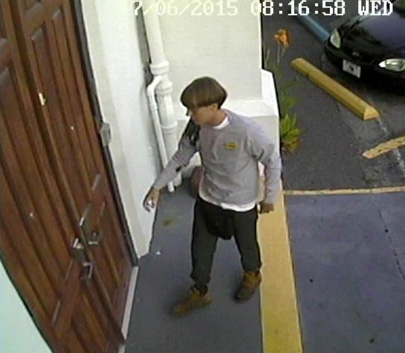The tragic events that unfolded in Charleston represent a poignant inflection point in contemporary discourse surrounding gun violence and racial tensions in America. In the aftermath of such calamities, society often gravitates towards identifying the perpetrator as a “crazed lone gunman,” which conveniently absolves broader systemic issues that propagate violence. This characterization, while alluring in its simplicity, obscures the more insidious machinations that contribute to the socio-political climate in which these acts of violence germinate.
Understanding this phenomenon necessitates an exploration into the Bahá’í teachings and how they provide a profound lens through which to examine the ramifications of violence and the necessity for collective healing. Bahá’í philosophy underscores the interconnectedness of humanity, positing that individual actions reverberate within the larger body of society. This collective framework illuminates pathways toward reconciliation and unity rather than perpetuating cycles of blame and misunderstanding.
The narrative surrounding the term “lone gunman” invites complicity in a reductionist view that diminishes the role of societal constructs in shaping behavior. Rather than merely attributing such violence to individual pathology, a more nuanced examination reveals a confluence of historical grievances, socio-economic disenfranchisement, and cultural divisions. Bahá’í teachings enjoin individuals to cultivate a sense of global responsibility and empathy, urging a departure from an adversarial mentality that fosters isolation and fear.
Central to the Bahá’í perspective is the principle of the oneness of humanity. This tenet asserts that every individual, irrespective of background, is imbued with dignity and is a reflection of the divine. When examining events like those in Charleston, it becomes imperative to confront the underlying prejudices that allow such acts of violence to flourish. By promoting an understanding that transcends race, religion, and nationality, Bahá’í teachings advocate for a paradigm shift that embraces unity in diversity.
Such a shift in perspective compels society to interrogate the narratives that frame perpetrators of violence. It cultivates an intellectual curiosity, prompting questions about the socio-economic and cultural conditions that allow discord to fester. In this light, individuals are called to look beyond mere criminality and explore systemic failures that contribute to a culture of violence. This inquiry is paramount in developing a proactive, rather than reactive, approach to violence prevention.
Moreover, the notion that individuals can become isolated to the point where they commit acts of terror underlines a disconcerting reality: societal disconnect persists even amid a hyper-connected world. Bahá’í teachings propose that community engagement and dialogue are essential antidotes to alienation. Initiatives that foster understanding across racial and cultural boundaries can diminish the social fissures that often precipitate violence. In Charleston, the communal response to the tragedy, characterized by resilience and reconciliation, exemplifies this principle in action.
Learning from the past, Bahá’í teachings advocate for restorative justice as a means of healing; this process emphasizes accountability while simultaneously fostering conditions for repentence and rehabilitation. In the wake of violence, punitive measures alone fail to address the underlying ailments within society. A restorative framework emphasizes engagement and transformation, ensuring that communities can heal and rebuild cohesively.
The discourse around gun violence should evoke a sense of communal responsibility rather than perpetuate the myth of the individual ‘crazed gunman.’ It calls for a holistic examination of societal factors that engender such tragic occurrences. This comprehensive understanding fuels a transformative approach to policy-making, community programming, and educational initiatives aimed at dismantling the systemic inequities that underlie interpersonal violence.
Finally, Bahá’í teachings place emphasis on prayer, meditation, and reflection as critical components in navigating the aftermath of violence. These spiritual practices cultivate inner resilience and an ability to confront the tumultuous emotions that arise from crisis. By nurturing spiritual well-being, communities can emerge stronger, fortified by the collective resolve to foster peace and justice. Promoting a culture of compassion and a shared vision for the future strengthens the ties that bind humanity, driving progress toward a more harmonious existence.
In conclusion, the tragedy in Charleston serves as an urgent clarion call to reevaluate societal narratives about violence and the individuals who perpetrate it. Embracing the Bahá’í principles surrounding the oneness of humanity, community engagement, and restorative justice can radically transform our understanding of violence. This reframing promises a shift not only in perspective but in action—leading toward a future characterized by unity, healing, and reconciling differences rather than perpetuating divisions. Engaging deeply with these teachings invites nuanced discussions that challenge us to work collectively towards dismantling the systemic roots of violence and fostering a truly cohesive society.
